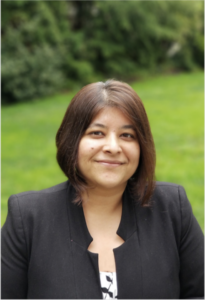Menu
Priyadarshani Joshi
UNESCO

Priyadarshani Joshi is senior research officer with the Global Education Monitoring Report at UNESCO. She leads and contributes on the issues of nonstate actors in education and how education is interlinked with other sustainable development outcomes, such as inclusive urban development and gender equality. She coordinated the South Asia Regional Report on non-state actors, liaising with several prominent regional partners. She also coordinates the GEM Report Fellowship Program, part of the Report’s cross-cutting agenda to engage with the academic community. Her background is in education policy, economics, and public policy. She previously held research positions at the International Monetary Fund and has done consultancies at UNICEF and the World Bank. Her personal research focuses on the system-wide consequences of private school growth for the education system. Her research has been published extensively in international education journals. She is interested in improving the measurement of competition and choice, and understanding education decision-making and functioning using stakeholder perspectives.
Talk Information:
An exploration of the causes and consequences of private schooling expansion: Global Trends, and Research Findings from Nepal
August 19, 2022 | 9:00 AM
While public education expansion has been one of the main objectives to expand the right to education, there has been a simultaneous growth in schools that are funded and provided by diverse types of non-state actors (proprietors, faith-based institutions, NGOs, civil society organizations). The expansion of fee-based private schooling in different price ranges has been under way at least since the 1990s. These trends are a result of demand side factors (e.g. ability to pay fees, parental aspirations for differentiation and quality) and supply side factors (e.g. lack of adequate public education, supply of teachers). Such expansion has made contributions to education expansion, but also leads to systemic consequences, especially on equity and stratification over time. The presentation will begin with a description of these trends and issues globally, drawing on the 2021 GEM Report on non-state actors in education, with a focus on South Asia and sub-Saharan Africa. It will then detail the presenter’s exploration of the consequences of private schooling expansion in Nepal’s education system.
For further reading:
UNESCO. 2022. Global Education Monitoring Report 2022 Youth Report: Non-state actors in education: Who chooses? Who loses? Paris, UNESCO.2021 GEM Report youth report
Paper commissioned for the 2021/2 Global Education Monitoring Report, Non-state actors in education. Acholla low-cost private schools
Play Video